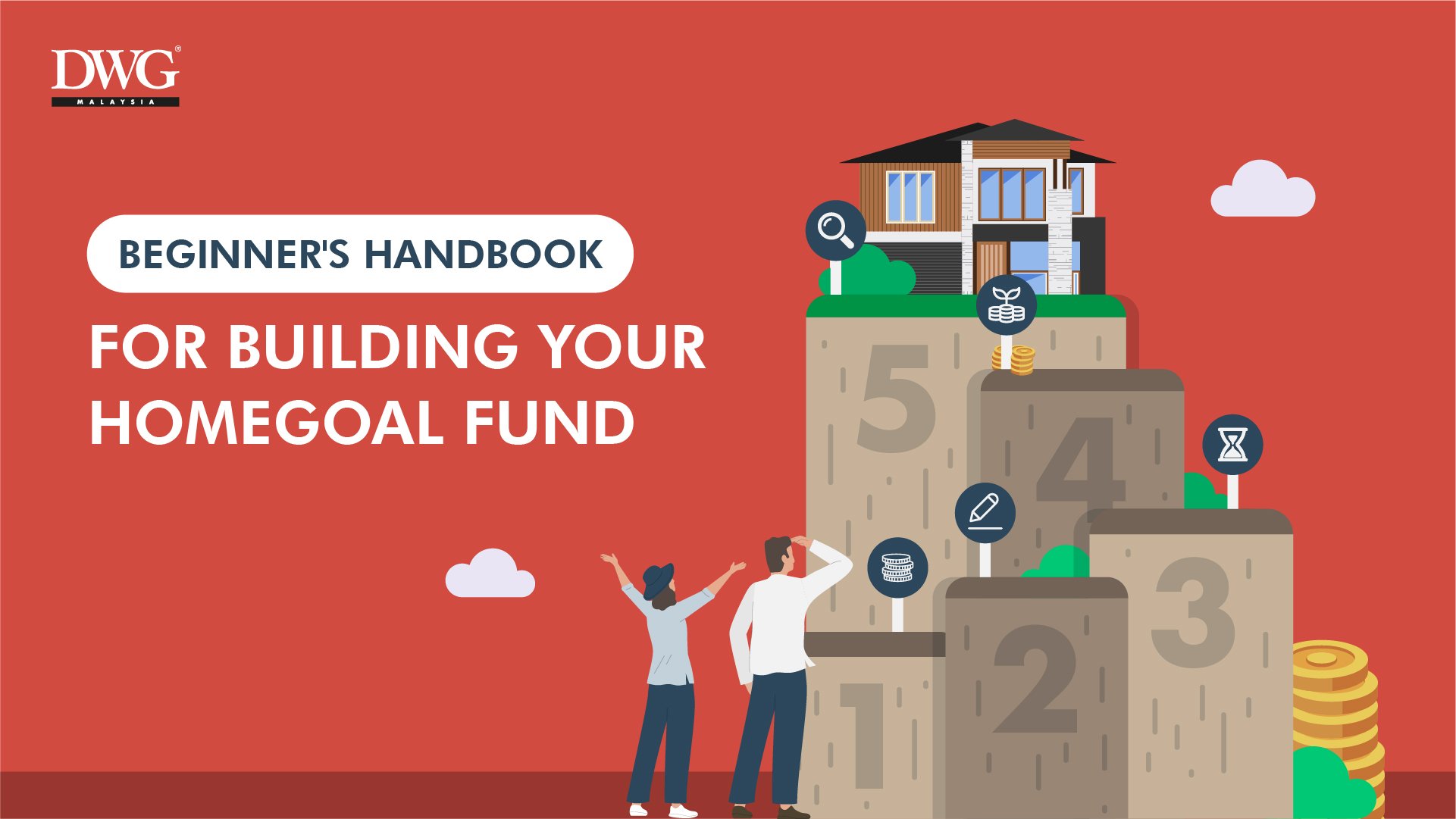What is the procedure to buy a house in Malaysia?
Buying a house is considered a significant milestone for many, but is purchasing a property as easy as just walking into a coffee shop and getting a cup of coffee? A home is one of the if not most significant financial investments you will make. The house you choose will become your sanctuary, refuge, and haven. It's also the place where you'll raise your kids and live with your partner.
When buying a house, there are so many things to consider. From location to budgeting, it can be overwhelming, but buying a property is also one of life's most rewarding experiences, especially if you're ready to settle down with a family or are looking for an investment opportunity.
So how do you buy a house? Here's a structured guide on how to buy a property in Malaysia.
You can skip to the sections that are relevant to you here:
1.0 Identifying the type of property
1.2 Landed or High-rise property
1.3 New development, sub-sale or auction
2.0 How to calculate your budget
3.3 National Property Information Centre
3.4 Valuation and Property Services Department
5.1 Sale and Purchase Agreement (SPA)
1.0 Identifying type of property
1.1 Location
Let’s start with the most important one, location. Location is everything. Location can determine how much money you save on your mortgage and how much time you spend commuting. The area around your home will also determine what kind of lifestyle you'll lead. For example, a rural area may be right for you if you want a peaceful environment. But if you want to be close to shopping and entertainment venues, an urban neighbourhood may be more up your alley.
1.2 Landed or high-rise Property
Once you have chosen where you want to live, you will want to consider choosing between landed or high-rise property. Landed properties refer to bungalows, semi-detached and terrace houses. High-rise properties refer to apartments, condominiums, SOHO and service residences. Each has its benefits and disadvantages, so deciding which one will suit your needs is essential.
1.3 New Developments, Secondary Market or Auction Property
Lastly, are you looking for new developments, secondary market or auction properties? If you are a first home-buyer, new developments typically offer more attractive packages on rebates and other promotions compared to the other two options.
2.0 How to calculate your budget
| Item | Rate |
|---|---|
| Monthly Instalments | Subjective |
| Down payment | 10% of property purchase price |
| Stamp duty on Memorandum of Transfer (MOT) | 1% - 4% of property purchase price |
| Stamp duty on Sale and Purchase Agreement (SPA) | RM10 per stamping |
| Stamp duty on Loan Agreement (LA) | 0.5% of loan amount |
| Property Agent Fees | 3% of property purchase price |
| Mortgage Insurance | Subjective |
2.1 Monthly Instalments
You have decided where and what to buy for your ideal house. The next step would be to determine how much you can afford. An excellent way to get started is by working out your monthly instalments. This will give you an idea of how much house you can afford, depending on your income bracket.
2.2 Down payment
In most cases, the minimal down payment is 10% of the property purchase price. So assuming you are planning to buy a RM500,000 property, you will need to prepare RM50,000 for the down payment. An important reminder is not to spend more than you can afford because there will be other hidden expenses to consider when buying a home.
2.3 Stamp duty on Memorandum of Transfer (MOT)
Memorandum of Transfer (MOT) is the transfer of ownership from a buyer to a seller, and there will be charges on stamp duty fees for it ranging from 1% – 4% of the property purchase price.
2.4 Stamp duty on Sale and Purchase Agreement (SPA)
If you’re buying new developments, a panel lawyer will usually be appointed by the developer assisting you on this journey. You must pay the stamp duty fee, which is RM10 per stamping.
2.5 Stamp duty on Loan Agreement (LA)
Your loan agreement will also require stamp duty with a fee of 0.5% of the loan amount. For example, a 90% loan for a RM600,000 property will be RM540,000, so the stamp duty fee for the loan agreement will be RM2,700.
2.6 Property Agent Fees
Based on the Seventh Schedule (Rule 48) of Valuers, Appraisers and Estate Agents Act 1981, the commission fee for property agents for the sale or purchase of land and buildings is up to 3%. However, the real estate agent fees are subject to a minimum price of RM1,000 per property.
2.7 Mortgage Insurance
Mortgage Insurance will pay your outstanding property loan in any event of death or total permanent disability. The rate can be subjective based on a one-time off payment or a monthly premium.
3.0 Searching for properties
You have decided on the ideal home you want and have checked out your budget for the property you can afford. Now comes the fun part: finding the property based on the criteria that fit you.
3.1 Property Finder
You can start with these two options:
PropertyGuru: www.propertyguru.com.my
iProperty: www.iproperty.com.my
These are Malaysia's two most popular property listing websites, with thousands of real estate listings updated daily. In addition, you can simplify your search with their filter functions on criteria such as type of homes, location and price based on what you are looking for.
3.2 Property Agent
Real estate agents are ‘area specialists’. Therefore, you can save time and effort from manually searching for properties. In addition, property agents have already done their research on the property market and assisted numerous buyers in finding their dream home, so you can rest assured that they can offer you the best options available based on your criteria.
3.3 National Property Information Centre (NAPIC)
If you want to dive deeper into Malaysia’s demand and supply of property, you can visit the website here: https://napic.jpph.gov.my/portal
3.4 Valuation and Property Services Department
If you want a strong understanding on the recent property transactions in the property market of Malaysia, you can visit this website: https://www.jpph.gov.my/v3/en/
4.0 Securing a housing loan
Now that you have planned your dream home, prepared a budget for it, decided on the actual property you want to buy, signed the booking form (Letter Of Offer) and paid the earnest deposit. It is time to secure a housing loan! You can skip this step if you pay for the house in full by cash. Otherwise, these three will be the most significant indicator for securing your housing loan. It will be best if you know them and keep them within healthy levels.
4.1 CCRIS Report
Central Credit Reference Information System (CCRIS) is a system set by Bank Negara Malaysia’s (BNM) Credit Bureau to understand better and evaluate a potential borrower's credit behaviours. It is a measure of financial health to check if you have healthy creditworthiness based on your financial borrowing and paying history. So it will be a good practice to always pay your debts on time, including your credit card. You can check for your CCRIS Report here.
4.2 CTOS Report
CTOS Data Systems Sdn Bhd (CTOS) is a Credit Reporting Agency in Malaysia. It is privately owned and maintains a database of an individual's or company's credit history. CTOS measures a consumer's credit risk based on a credit score. The credit score ranges from 300 to 850, with higher scores indicating lower credit risk. So again, always pay your debts on time to maintain a healthy credit score. You can check for your CTOS Report here.
4.3 Debt Service Ratio (DSR)
The Debt Service Ratio (DSR) determines a borrower’s ability to repay debts. It is calculated as income divided by debt-related obligations. Bankers often consider this ratio when deciding whether or not to approve a home loan application. You can use the DSR Calculator here.
5.0 Completing the deal
You are at the last part of the journey on how to buy a house. So you have decided on a property, secured the loan for it, and now it is time to seal the deal. Upon signing all the mentioned documents below, you will need to pay the balance down payment to the developer or seller within 1 or 2 weeks to avoid issues. However, if you are still lost and unsure, your property agent will be there to guide you through what needs to be prepared and done.
5.1 Sale and Purchase Agreement (SPA)
The SPA is a crucial legal document that outlines all of your purchase's terms and conditions. Lawyers will be involved at this point. There will usually be an appointed lawyer for new developments as part of the package. For secondary market and auction property, you will need to engage a lawyer to assist you with the legal procedures (the property agent will help you with this).
5.2 Loan Agreement (LA)
The Loan Agreement is an agreement between the purchaser and the bank that states their loan terms, including interest rates and repayment terms. This document usually protects both parties but is generally created to favour the bank's interests.
5.3 Memorandum of Transfer (MOT)
The MOT document will prove that you are the legal owner of the property. There is more info on MOT here.
6.0 Moving into the house
Congratulations! After all of that, everything is done, and it is finally time to move into your new home.
6.1 Vacant Possession (VP)
You can decide to move in as soon as you receive Vacant Possession (VP), which should be within 36 months of signing the SPA for a strata property, and within 24 months for an individual property. If you do see any cracks on the wall or defects on the property, rest assured of the availability of the defect liability period, which is the duration of time during which the builder is legally bound to repair any faulty workmanship.
6.2 Certificate of Completion and Compliance (CCC)
A certificate of compliance is a document issued by the local authority that says your new property conforms to all legal standards and is safe for you to occupy.
MORE ARTICLES


































